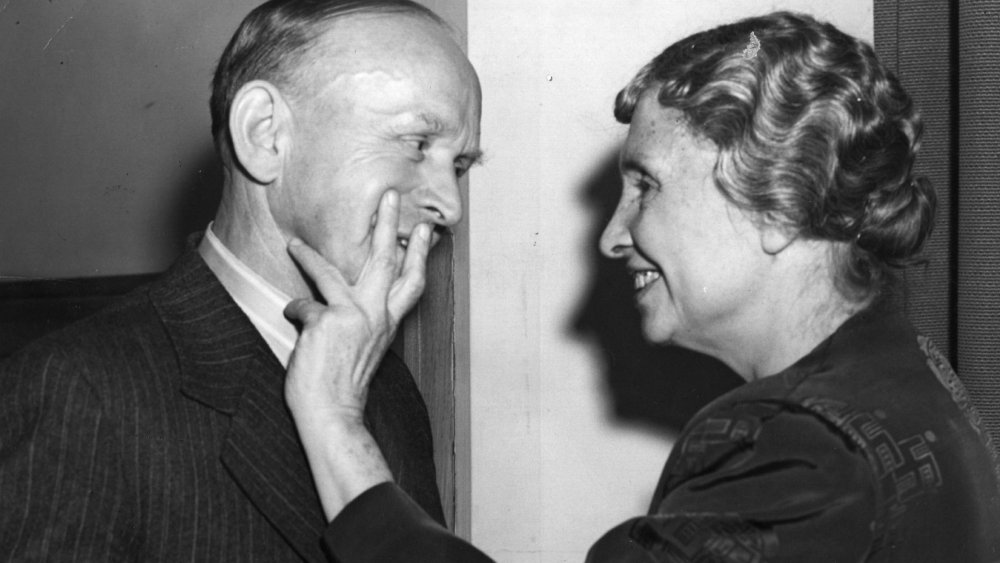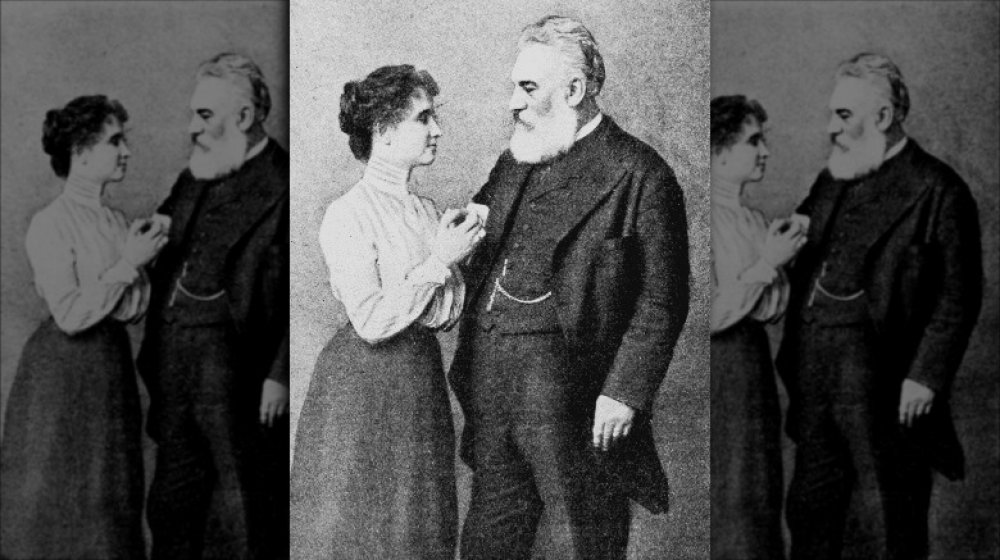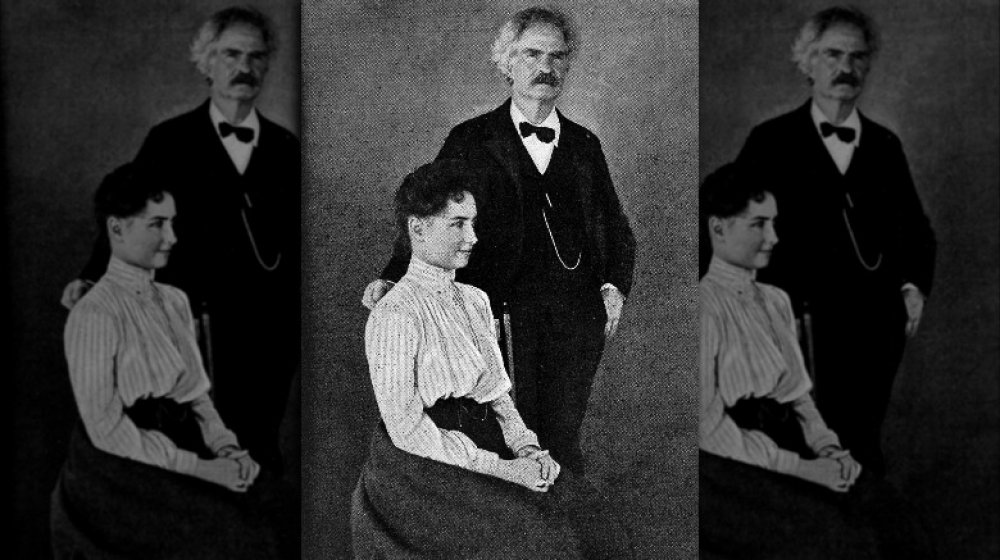What You Don't Know About Helen Keller's Famous Friendships
Helen Adams Keller is a well-known figure in American history, best remembered for achieving a successful career as a writer and activist in spite of her deafness and blindness. Many movies and plays have been produced about the life of Keller, but they often center exclusively around her youth. Of course, Helen Keller did have a fascinating childhood; starting in 1887, her instructor — Anne Sullivan — helped Keller to come to understand the world around her using her sense of touch. The American Foundation for the Blind records Keller proved to be a brilliant student, and would go on to graduate from Radcliffe College in 1904, becoming the first deafblind person to attain a Bachelor of Arts degree.
But there are plenty of riveting elements about Helen Keller's life that aren't covered in this traditional story about her youth. In particular, it's often overlooked just how radical Keller was in her personal politics. Besides advocating for the rights of disabled people and for women's suffrage, Time says Keller was also a member of the Socialist Party of America and the similarly left-wing Industrial Workers of the World union.
If we want to better understand Helen Keller's fascinating story, it can be helpful to look at the people she chose to befriend. From inventors to authors to actors, Keller was buddies with many unique individuals over her 87-year lifespan.
Keller befriended famous inventors like Alexander Graham Bell
One of Helen Keller's longest friendships was with the Scottish-born inventor Alexander Graham Bell, who is best known for developing the first successful telephone. According to the Encyclopedia Britannica, Alexander Graham Bell's mother was nearly deaf, and both Bell and his father worked as educators for deaf people. This career choice would bring Bell into the life of Helen Keller. According to Biography, Bell and Keller first met in 1886, when Keller's parents sent her to receive help from specialists in Washington, D.C. The two immediately became close friends, with Keller writing that she "loved [Bell] at once."
Bell and Keller kept up a decades-long correspondence. Bell, who was much older, was like a second father to Keller. In fact, Biography continues, Bell established the trust fund that financed Keller's education at Radcliffe College. When Keller published her autobiography in 1903, she dedicated it to Bell.
Helen Keller also made the acquaintance of a number of other famous inventors from America's history. Keller kept up an occasional correspondence with Thomas Edison; the two could bond over the fact that Edison, who invented the light bulb, was also nearly deaf. Additionally, Keller met several times with Henry Ford of Ford Motors fame. In fact, Ford once sent a telegram to Keller asking if she would accompany him to European peace talks to help end World War I.
Many of Keller's closest friends were political radicals, like Mark Twain
Besides a penchant for inventing, another commonality between many of Helen Keller's friends was their passion for left-wing politics. Perhaps the best known of Keller's radical companions was the American author Mark Twain.
According to the Georgia Review, Twain and Keller first met at the home of Laurence Hutton, a mutual friend. Keller was only 14, and Twain was in his 50s. In spite of the age difference, the two got along instantly. Keller wrote to her mother that Mark Twain's stories "made us laugh till we cried," and Twain would later call Keller "the eighth wonder of the world." According to JSTOR, the two kept up a correspondence until Twain's death in 1910, bonding over their passion for radical politics. The two weren't always on the same page, though; Keller would often make fun of Twain for his pessimism.
Besides Mark Twain, another of Helen Keller's most famous progressive friends was Eleanor Roosevelt. According to the American Foundation for the Blind, Keller was an open supporter of President Franklin Roosevelt, and she met with him and the First Lady on a number of occasions. A letter from Helen Keller to Eleanor Roosevelt reveals Keller's admiration for the First Lady's progressive politics, as well as a desire to see Mrs. Roosevelt show additional support to the blind community.
Finally, as per the Huffington Post, Helen Keller befriended the famous silent-film star Charlie Chaplin at a meeting in 1919. Later, in a 1947 letter, Keller would thank Chaplin for the way his films satirize society's hypocrisy — in particular, the way that governments can disguise "mass destruction" as "patriotism and liberty."


